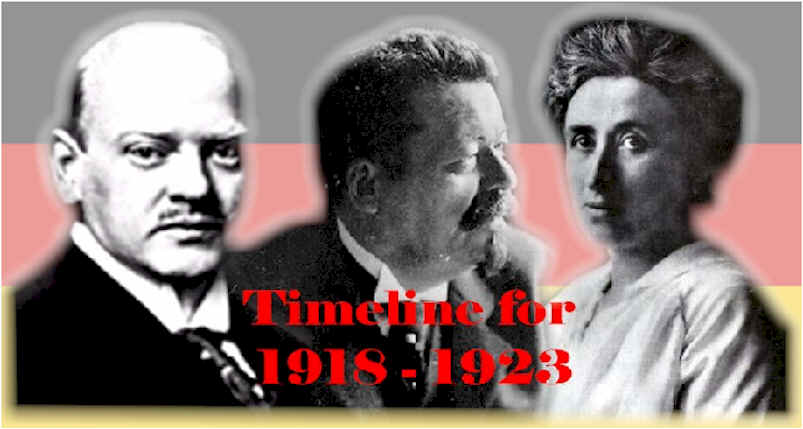 |
||
| By Jacob de Graaf |
|
|
The price of bread was 0.54 German Marks 2.4 million German killed. 70% of the cost of the war met by loans. As the winter of 1918 approached, conditions grew much worse. Food supplies ran so low that most adults were living on less than 1,000 calories a day, which is at starvation level. Fuel shortages led to power cuts, factory closures and transport problems.
On the 2nd October Kaiser Wilhelm shared his power with the Reichstag, he allowed the main parties in the Reichstag, Germany's parliament, to form a new government. On the 28th October when Germany's navy chiefs made an
unpopular decision. They ordered the ships in the Kiel harbour to be put at sea.
They mission was to fight the British. The sailors were horrified by the order.
They knew that peace talks had begun and that the war might soon be over. They
said it would be suicide to fight the British, and were promptly arrested for
mutiny.
The mutiny in Kiel quickly spread, over the next week soldiers and sailors set up soviets to run towns where they lived. Everywhere police and army officers gave up their weapons and surrendered. Kaiser Wilhelm was losing control of his country. On 9th November the army high command told Wilhelm that the army could no longer support him. Wilhelm abdicated and Friedrich Ebert, leader of the largest socialist party, took his place as head of the Government. Friedrich Ebert made dramatic changes, he ordered improvements in people's living conditions, he ended censorship and allowed free speech. He ordered a maximum eight-hour day working day, help for the unemployed, and increased food supplies. He arranged for elections to be held in January 1919 for a new national parliament. On the Last day of 1918 the Spartacists renamed themselves to the German Communist Party On the 11th November, the First world war ended when the Germans signed the armistice. |
|